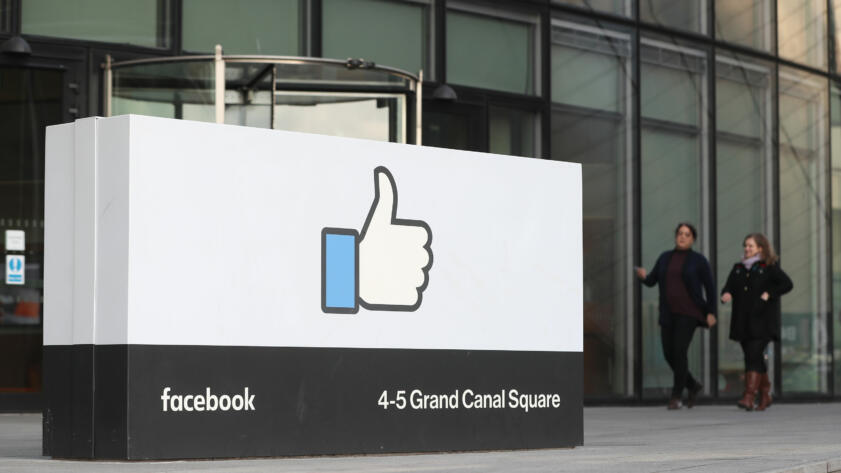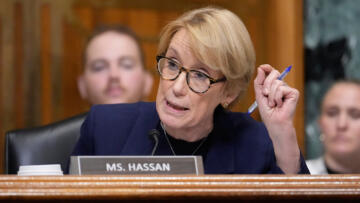Last month, Facebook announced a crackdown: The platform would no longer permit content that “denies or distorts the Holocaust” as part of its larger policy prohibiting hate speech.
While noting that successful enforcement could take time, Monika Bickert, Facebook’s vice president of content policy, explained the ban in a blog post. “Our decision is supported by the well-documented rise in anti-Semitism globally and the alarming level of ignorance about the Holocaust, especially among young people,” she wrote.
But as of mid-November, The Markup has found, numerous Facebook pages for well-known Holocaust denial groups remain active—and for users who find the pages, Facebook’s algorithms continue to recommend related content, effectively creating a network for pushing anti-Semitic content.
Facebook has long struggled to tamp down on quick-traveling misinformation and shape-shifting conspiracy groups, but many of the discriminatory pages The Markup found either belonged to groups with a long history of prominence within the Holocaust denial movement or directly referenced well-known anti-Semitic or white nationalist memes, making them seem like obvious targets for Facebook’s crackdown.
It’s unclear whether Facebook considers the posts and groups The Markup found unacceptable. The company did not announce how it would define Holocaust denialism, and the company did not respond to multiple requests for comment; all the pages and posts referenced in this article were still active as of Nov. 23 at 5 p.m. ET.
None of the organizations tied to the Facebook pages mentioned in this story responded to The Markup’s request for comment.
The Markup relied on the judgments of outside organizations that monitor hate groups to identify Holocaust denial groups. And while some pages were explicit—like the “Holohoax tales”—others were more subtle and shied away from explicitly mentioning the Holocaust.
Holocaust denial … is most effective when the deniers mix enough factual material into their arguments to confuse readers (including content moderators) or obfuscate their core beliefs.
Jonathan Greenblatt, Anti-Defamation League
For example, the Institute for Historical Review (IHR) has a Facebook page with more than 1,300 followers, despite being identified by the Southern Poverty Law Center (SPLC) as “a pseudo-academic organization that claims to seek ‘truth and accuracy in history,’ but whose real purpose is to promote Holocaust denial and defend Nazism.”
The group also has a Twitter account, despite that company’s similar ban on Holocaust denial.
Twitter spokesperson Ian Plunkett told The Markup that the account is “not currently in violation of our policies.”
Recent posts on the group’s Facebook page include a link to an episode of the Institute for Historical Review’s podcast attacking the post-WWII Nuremberg trials for being unfair to the German officials who were found guilty of committing war crimes. The host of that podcast, Mark Weber, is described by the SPLC as having “probably done more than any other American to popularize denial of the World War II Holocaust of European Jews.”
Another post links to an article listing Jewish donors who gave the largest amount during the 2020 U.S. election cycle. And another consisted of a link to a Guardian article about how most young people in the U.K. were unaware of many specifics of the Holocaust, adding a string of astonished-face emoji. Comments on the post attacked Jewish people for supposedly trying to assert “victimhood” as a result of the Nazi regime’s genocidal ambitions.
“Holocaust denial, whether on Facebook or elsewhere, is most effective when the deniers mix enough factual material into their arguments to confuse readers (including content moderators) or obfuscate their core beliefs,” said Jonathan Greenblatt, CEO of the Anti-Defamation League (ADL). “Others have become adept at communicating with codewords to avoid detection by content moderators. This underscores the importance of high-quality training for both human moderators and detection algorithms.”
In a box on the side of the IHR page, Facebook has suggestions for other “related pages” that users might find interesting. Facebook routinely recommends groups—but in this case, the algorithmically derived suggestions potentially serve as a direct vector for radicalization.
Facebook, for instance, points visitors to IHR’s page to another Facebook group, called CODOH Revisionist Forum, short for Committee for Open Debate on the Holocast. In a 2010 report, the Anti-Defamation League said that group’s mission was “to disseminate Holocaust denial to students on college campuses.”
Visitors to the CODOH page would find a link to a blog entry titled “Holohoax Tales” on the organization’s website. And Facebook users may also encounter additional recommendations for pages to visit on the platform, including Castle Hill Publishers, which the SPLC lists as another active Holocaust denial group and which has deep ties to CODOH. From there, Facebook recommended a fan page for Ernst Zündel, a neo-Nazi who died in 2017 who was notable both for his Holocaust denial and his authorship of a book titled “The Hitler We Loved and Why.” From the Zündel page, Facebook recommended a group named after the white nationalist “white genocide” conspiracy theory, which charges that a shadowy cabal of Jews is actively working to destroy the White race by encouraging race-mixing.
And the chain of recommended pages continues, leading users further and further into a web of discriminatory content. While many of these pages in this algorithmically created network focus on anti-Semitism, some of the recommended pages promote hate against other groups, like African Americans.
I find [Holocaust denial] deeply offensive. But at the end of the day, I don’t believe that our platform should take that down because I think there are things that different people get wrong.
Mark Zuckerberg, Facebook CEO, explaining Facebook’s previous policy on Holocaust denial.
Page recommendations on Facebook do vary from user to user, but these related-page recommendations appeared both when The Markup visited them directly while logged into a reporter’s personal account and when the page was captured through a direct, not-logged-in visit by the third-party web archiving tool Archive.Today.
“Unfortunately, Holocaust denial has been a serious problem that ADL has been flagging for Facebook for more than a decade,” Greenblatt said, while also noting that Facebook has removed some anti-Semitic pages after announcing the ban. “The good news is that they are finally taking action, but clearly much more needs to be done to effectively identify and remove this form of blatant antisemitism on their platform.”
Facebook initially resisted banning Holocaust-denying content.
In a 2018 interview, Facebook founder Mark Zuckerberg told Recode that, while he didn’t agree with those saying the Holocaust never happened, he didn’t feel it was his company’s job to remove that content from his platform.
“I find that deeply offensive. But at the end of the day, I don’t believe that our platform should take that down because I think there are things that different people get wrong,” Zuckerberg said.
Facebook’s stated reason for the policy change stemmed from concerns about how public ignorance about the Holocaust related to the prevalence of anti-Semitism.
“Institutions focused on Holocaust research and remembrance, such as Yad Vashem, have noted that Holocaust education is also a key component in combatting anti-Semitism,” Bickert wrote at the time.
The post also noted that, beginning later this year, Facebook will start directing users to factual information about the Holocaust when they search for terms related to the event or terms associated with Holocaust denial. Those information boxes have yet to appear on any of the Holocaust denial pages The Markup identified in this story.





